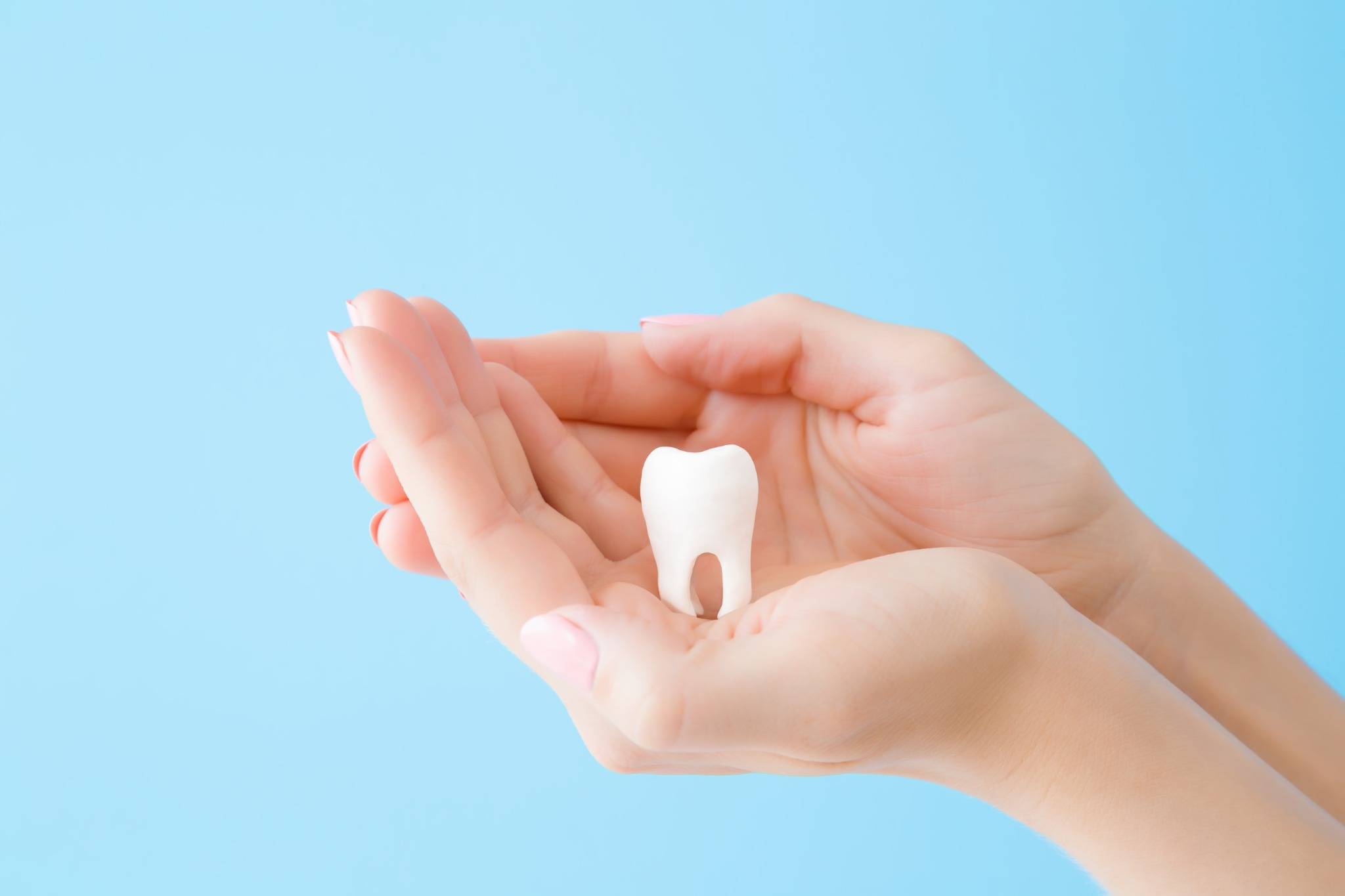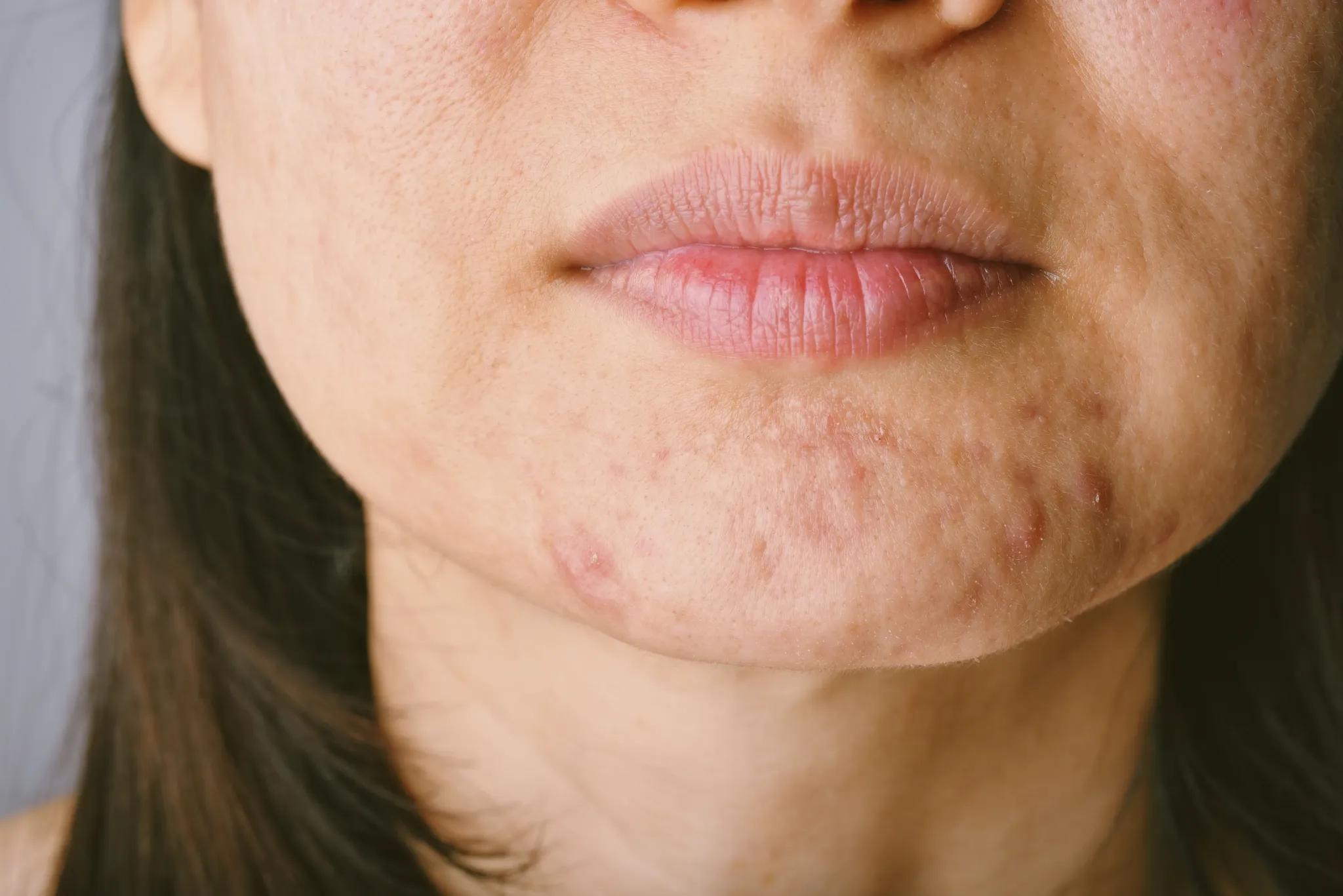Teeth whitening is a popular way to improve your smile. However, if you’ve experienced sensitive teeth from teeth whitening, you’re not alone. Many people notice discomfort after using whitening products, particularly with their sensitive front teeth.
This article delves into the causes of this sensitivity, recognises the symptoms, and explores effective solutions.
The Science Behind Tooth Whitening: How Does It Work?
Teeth whitening treatments use active ingredients, like hydrogen peroxide or carbamide peroxide, to lift stains embedded in the enamel.
These bleaching agents are effective but can sometimes penetrate the enamel and reach the dentin layer, which can stimulate the nerves in the tooth’s pulp.
What Causes Stains on Teeth?
Certain foods, drinks, and lifestyle habits can cause teeth staining over time. Key contributors include:
- Dark-Coloured Beverages: Coffee, tea, and red wine are common culprits.
- Acidic Foods: Citrus fruits, tomatoes, and soda can erode enamel, making teeth more prone to stains.
- Lifestyle Habits: Smoking and chewing tobacco lead to deep stains.
- Medications: Certain antibiotics and antihistamines can cause tooth discoloration.
These agents help whiten teeth by breaking down stains, which improves your smile. However, if not used correctly, they can lead to sensitive teeth from teeth whitening.
Why Can Whitening Cause Sensitivity?
As effective as whitening treatments can be, they often come with temporary discomfort. Here’s a breakdown of why whitening sensitive teeth is a common issue:
- Enamel Penetration: The outer layer, or enamel, can become thin or compromised, allowing bleaching agents to reach the dentin layer.
- Exposure to Dentin: Beneath the enamel lies dentin, which contains microscopic tubules that lead directly to the tooth’s nerves.
- Stimulating the Pulp: When these bleaching agents reach the pulp, they can stimulate the nerves, causing that familiar zing of sensitivity.
Using over-the-counter whitening kits or poorly fitted trays can increase the risk of sensitive front teeth as they may allow the gel to irritate gums. Whether you experience sensitivity in one tooth or throughout your entire mouth, understanding the cause is key to finding relief.
Common Signs of Sensitive Teeth from Teeth Whitening
While not everyone who whitens their teeth will experience sensitivity, it is quite common, particularly for those with thinner enamel or pre-existing dental sensitivities. For those who do experience discomfort, the symptoms can vary from mild to more intense.
Here are some common signs to watch for:
- Sharp, Sudden Pain: Often triggered by consuming hot or cold foods and drinks, this type of pain is usually quick but intense, making it hard to enjoy temperature-sensitive treats, especially after teeth whitening sensitivity kicks in.
- Sensitivity to Cold Air: Simply breathing in cold air can cause tingling or discomfort, especially when the enamel has been affected by whitening treatments. This can make outdoor activities in cooler weather less pleasant.
- Sweet Sensitivity: Sugary foods or drinks can irritate exposed nerve endings, causing discomfort or a dull ache. The sweet sensitivity occurs because sugars can seep into small openings in the enamel, triggering a reaction in sensitive teeth.
- Sensitivity During Brushing or Flossing: If brushing or flossing causes discomfort, it might be a sign that the enamel has thinned or that the gums are more exposed. Switching to a soft-bristled toothbrush and gentle toothpaste can help mitigate this discomfort.
- Pain During Dental Cleanings: If you’re due for a dental cleaning, you might find the experience uncomfortable, especially if cold water is used. The process can stimulate nerve endings, causing brief but noticeable pain.
While these signs of sensitive teeth from teeth whitening typically subside on their own, persistent sensitivity could indicate an underlying issue.
If sensitivity continues, consulting a dental professional can help you determine the best approach to managing discomfort and ensuring long-term dental health.
How Long Does Sensitivity Last After Whitening?
Sensitivity from whitening treatments is typically short-lived. Here’s an overview of what you can expect:
- Mild Sensitivity: Generally fades within 24-48 hours post-treatment.
- Moderate Sensitivity: Can last a few days, especially if you’ve undergone multiple sessions.
- Severe Sensitivity: May persist for a week or more, which is uncommon but possible with frequent whitening or higher-strength products.
If you find yourself wondering, does teeth whitening hurt? The answer can depend on your personal tolerance and enamel health.
When to Avoid Teeth Whitening: Special Cases and Contraindications
While teeth whitening is generally safe, there are specific scenarios where it might not be advisable. Here are some cases where caution is recommended:
- Pregnancy and Breastfeeding: It’s best to avoid teeth whitening during pregnancy or while breastfeeding, as the effects of whitening agents on babies are not fully understood. Dentists often suggest waiting until after this period to consider whitening treatments.
- Dental Restorations: Individuals with crowns, veneers, or fillings on their front teeth may want to avoid whitening since these restorations won’t change colour with bleaching. This can lead to uneven colouring, as only natural teeth respond to whitening agents.
- Pre-existing Dental Conditions: Those with untreated cavities, gum disease, or exposed roots should avoid whitening until these issues are addressed. Whitening agents can aggravate existing dental conditions, leading to increased sensitivity or discomfort.
- Highly Sensitive Teeth: If you already suffer from tooth sensitivity, you may experience heightened discomfort during whitening. Discussing alternative treatments with a dentist, such as lower-strength whitening options or desensitising products, can be beneficial.
For anyone unsure about their suitability for whitening, a dental consultation can help determine the safest and most effective approach.
How to Soothe Sensitive Teeth After Whitening
Experiencing discomfort from sensitive teeth whitening is common, but there are several strategies you can try to help reduce sensitivity and protect your teeth:
- Take Pain Relievers: A nonsteroidal anti-inflammatory drug (NSAID), such as ibuprofen, can help reduce discomfort both during and after your whitening session. Taking it about 30 minutes before treatment can prevent pain from escalating, making the process more comfortable.
- Use Desensitising Gels: Certain gels, available from your dentist, contain ingredients like potassium nitrate or sodium fluoride. These compounds can block pain signals and help remineralise your teeth, reducing sensitivity. Apply the gel as directed before your whitening treatment for the best results.
- Switch Toothpaste: Opt for a toothpaste specifically designed for sensitive teeth. These formulas usually contain compounds that help block tubules in the dentin, reducing sensitivity and strengthening enamel over time. Use this toothpaste daily to build up resistance to discomfort.
- Use a Soft-Bristled Brush: A soft-bristled toothbrush is gentler on both your enamel and gums. Harder brushes can erode enamel and worsen sensitivity, so switching to a softer brush can help prevent further irritation.
- Avoid Cold Beverages: If you’re sensitive to cold, try using a straw to keep cold drinks away from your teeth, or opt for room-temperature beverages instead. Minimising exposure to extreme temperatures can significantly reduce discomfort.
Many people also turn to facial Bondi options after addressing tooth sensitivity to improve their overall look. Whether it’s to reduce sensitivity or rejuvenate your appearance, you can explore treatments that help you feel comfortable and confident.
Preventing Sensitivity During Whitening Treatments
Concerned about sensitive teeth whitening? These preventive tips can help minimise discomfort:
- Use Lower-Strength Whitening Products: If you’re using over-the-counter products, select one with a lower concentration of peroxide.
- Desensitising Toothpaste: Starting a few weeks before your whitening treatment, switch to a toothpaste designed for sensitive teeth.
- Limit Treatment Duration: Follow recommended usage times for kits to avoid overexposure.
- Space Out Sessions: For at-home kits, whitening every other day can give your teeth time to recover.
These approaches can make your whitening experience more comfortable. If you’re planning to visit Bondi Junction skin cancer clinic, adopting preventive measures can help keep sensitivity at bay.
Alternatives to Whitening Treatments for Sensitive Teeth
If you’re prone to sensitive teeth from teeth whitening, there are alternative ways to brighten your smile that may be gentler on your enamel. Here are some effective options to consider:
- Whitening Toothpaste: Specially formulated with less aggressive ingredients, whitening toothpaste can help lift surface stains over time. Using it regularly can maintain a whiter smile without the need for stronger bleaching agents, reducing the risk of sensitivity.
- Professional Polishing: Regular dental cleanings and polishings at a clinic can brighten your smile without using bleaching chemicals. During a cleaning, your dentist can remove surface stains and plaque build-up, leaving your teeth looking fresher and smoother.
- Whitening Strips for Sensitive Teeth: Some brands offer whitening strips made specifically for sensitive teeth, containing milder bleaching agents and shorter application times. These strips can be a good compromise, providing noticeable results while being less likely to trigger sensitivity.
- Dietary Adjustments: Cutting back on foods and drinks that stain – such as coffee, tea, red wine, and acidic foods – can help maintain a naturally brighter smile. Incorporating more fruits and vegetables can also benefit your teeth by increasing saliva production, which helps wash away staining substances.
These alternatives are perfect for those with sensitive teeth who still want to maintain a refreshed look. Visiting the clinic Bondi for complementary non-dental treatments can boost your confidence as you enjoy your brighter smile.
Home Remedies to Relieve Teeth Sensitivity
In addition to over-the-counter products, there are several home remedies that can help soothe sensitive teeth from teeth whitening. These natural solutions can offer relief from discomfort and are easy to incorporate into your daily routine:
- Saltwater Rinse: Rinsing with warm salt water not only helps cleanse your mouth but also reduces inflammation. Dissolve a teaspoon of salt in a glass of warm water and swish it around your mouth for 30 seconds before spitting it out. Repeat this twice a day for the best results.
- Oil Pulling: Swishing coconut oil in your mouth for 15-20 minutes can reduce bacteria and plaque buildup. Known for its antibacterial properties, coconut oil can help protect your teeth from further irritation. Make sure to spit the oil into a bin rather than the sink, as it can solidify and block pipes.
- Clove Oil: Clove oil has natural anti-inflammatory and analgesic properties, making it ideal for tooth sensitivity. Apply a small amount of clove oil to the sensitive areas with a cotton swab. This can help numb the pain and reduce inflammation around affected teeth.
- Baking Soda Rinse: A baking soda rinse can neutralise acids in your mouth that may be contributing to sensitivity. Add half a teaspoon of baking soda to a glass of water and swish it around your mouth for about 30 seconds.
These remedies offer a natural, gentle approach to alleviating discomfort associated with sensitive teeth from teeth whitening. Use them consistently for the best results and consult your dentist if sensitivity persists.
Brighten Your Smile Without the Discomfort
With the right care, sensitive teeth from teeth whitening can be effectively managed, allowing you to enjoy the benefits of a brighter smile without the discomfort.
By understanding the causes, recognising symptoms, and implementing preventive measures, you can keep sensitivity at bay and maintain a healthy, radiant smile. Remember, if sensitivity persists, consult with a professional for personalised advice.
If you’re looking to further improve your look after addressing sensitive teeth from teeth whitening, Bondi Junction Cosmetic Clinic offers advanced non-surgical treatments to help you feel rejuvenated and refreshed. Discover how their cutting-edge solutions can complement your new smile and bring out your natural radiance!




